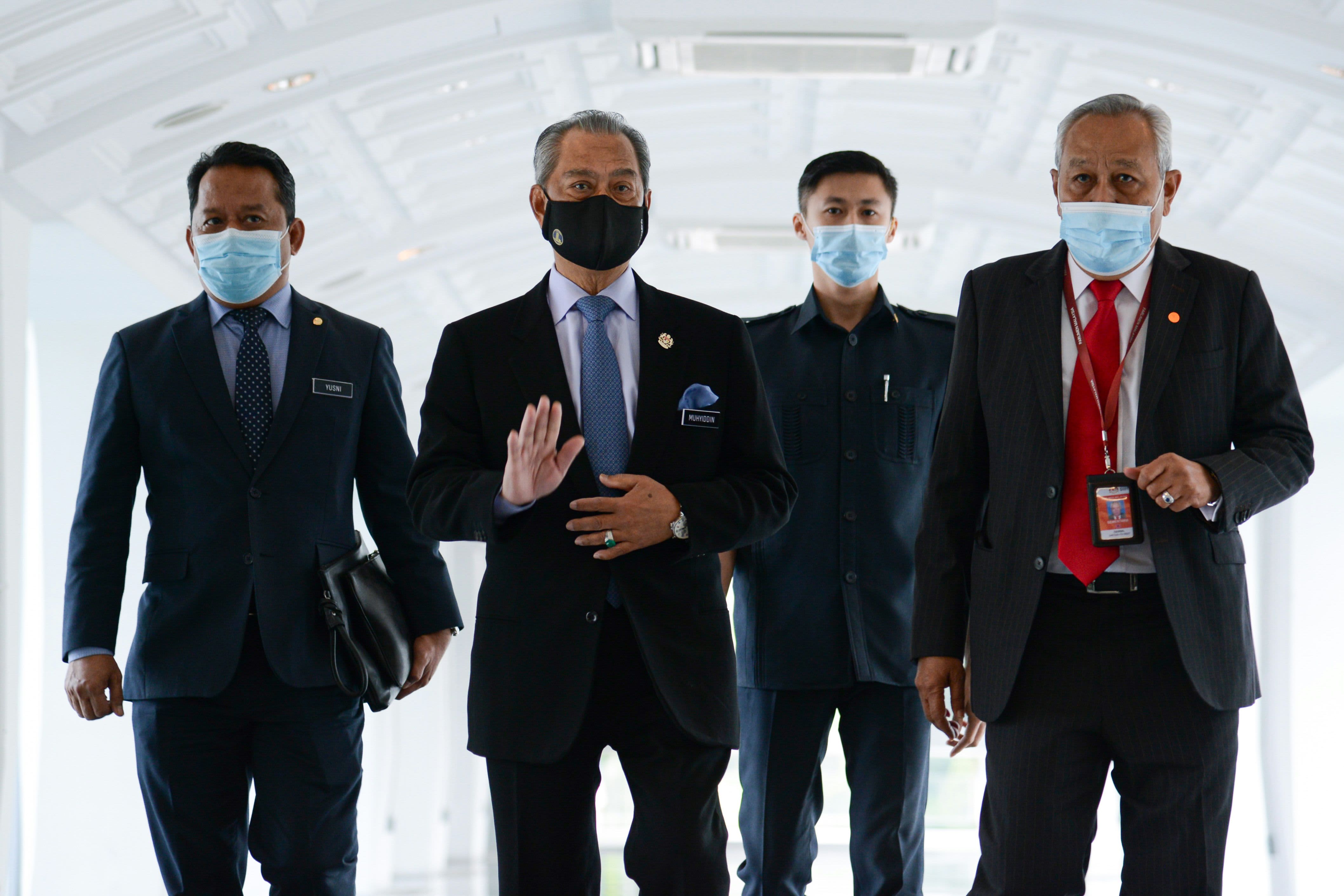
This photo from the Malaysian Department of Intelligence, taken and released on November 26, 2020, shows the Prime Minister of Malaysia, Muhyiddin Yassin (2nd L), waving when he arrives at a session of the Malaysian Parliament in Kuala Lumpur.
Nazri Rapaai | Malaysia Department of Information | AFP through Getty Images
Malaysia has signed an agreement to purchase 6.4 million doses of AstraZeneca coronavirus vaccine and is in final talks with Chinese and Russian manufacturers to get more, Prime Minister Muhyiddin Yassin said on Tuesday.
The Southeast Asian country has already secured 12.8 million doses from the agreement with Pfizer-BioNTech signed last month, as well as from its participation in the global COVAX facility, supported by the World Health Organization (WHO).
“This means that we have provided the supply of vaccine to cover 40% (of the population),” Muhyiddin said in a televised address.
Malaysia expects to buy enough supplies to inoculate 26.5 million people, or more than 80% of its people.
The government is now in final negotiations with Chinese producers Sinovac and CanSino, as well as with the Russian Gamaleya Institute to cover the rest, Muhyiddin said.
Public procurement agreements are expected to cost a total of $ 504.4 million (2.04 billion ringgit), he said.
To boost confidence in the safety and effectiveness of vaccines, Muhyiddin said he will be among the first to receive a dose, followed by frontline and high-risk groups such as the elderly.
The government expects to receive the first batch of Pfizer-BioNTech vaccine in February, he added. Malaysia was the first country in Southeast Asia to enter into an agreement with the US drug manufacturer.
Under the Pfizer agreement, it will receive 1 million doses in the first quarter of 2021 and 1.7 million, 5.8 million and 4.3 million doses in the following quarters.
Neighboring Singapore was the first Asian nation to receive the Pfizer vaccine on Monday, when its first batch arrived from Belgium.